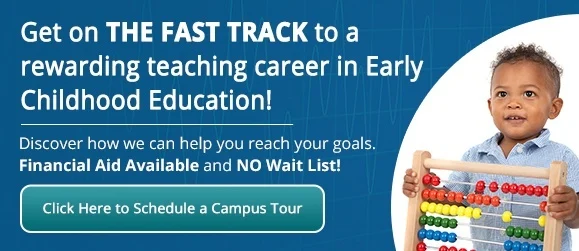Engaging Families: The Collaborative Partnership Between Parents and Early Childhood Educators
Posted On August 3,2023
Are you considering a career in early childhood education? Do you aspire to shape young minds and create a positive learning environment for preschoolers? If you’re a prospective student thinking about becoming a preschool teacher, one of the essential aspects of your journey will be learning how to effectively communicate and build strong relationships with students and their families. This collaborative partnership offers a nurturing educational experience for young learners and helps set students up for success.

The Road to Becoming a Preschool Teacher
Becoming a preschool teacher is a path filled with boundless opportunities for personal and professional growth. Early childhood educators play an important role in laying the foundation for a child’s cognitive, social, and emotional development. As a prospective teacher, you will learn how to create a supportive and inclusive learning environment for your students, both in and out of the classroom.
Challenges in Building Parent-Educator Relationships
1. Establishing Effective Communication
One of the key challenges early childhood educators face is establishing effective communication channels with parents or guardians. Open and clear communication is vital in keeping parents informed about their child’s progress, milestones, and areas in need of improvement. However, varying schedules and limited time can make it challenging to connect with every family regularly.
What can you do?
- Utilize multiple communication channels: Explore various communication avenues, such as email, phone calls, parent-teacher conferences, and digital platforms to ensure that parents are engaged and informed.
- Be proactive and responsive: Initiate regular updates and encourage parents to share their thoughts and concerns. Demonstrate your willingness to address any questions promptly.

2. Fostering Trust and Collaboration
Building a strong and trusting relationship with parents is paramount to ensure a child’s success in preschool. Some parents might be hesitant or unsure about entrusting their child’s education to someone new. As an early childhood educator, it is helpful to establish trust and encourage collaborative efforts between parents and teachers.
How can you do this?
- Create a welcoming environment: Make an effort to create a warm and inviting atmosphere in your classroom. Parents should feel comfortable approaching you and engaging in discussions about their child’s progress.
- Involve parents in the learning process: Encourage parental involvement in school activities, events, and projects. This not only fosters a sense of belonging for parents but also strengthens the bond between educators and families.
3. Addressing Diverse Family Backgrounds
In a diverse and multicultural society, early childhood educators often encounter families with different cultural, linguistic, and socio-economic backgrounds. Understanding and respecting these diversities is essential to effectively engage with families and support their children’s development.
How can you help?
- Embrace cultural sensitivity: Educate yourself about the cultural backgrounds of your students and their families. Show genuine interest and respect for their traditions and values.
- Incorporate diversity in the curriculum: Create an inclusive learning environment that celebrates various cultures and languages. Use diverse resources and materials to reflect the experiences of all students.

Empowering Collaboration for Positive Outcomes
Navigating the challenges of communicating and building relationships with students’ families requires dedication, empathy, and an open mind. As a prospective early childhood educator, you can empower yourself to embrace these challenges and foster a collaborative partnership with parents that will benefit the children’s educational journey.
1. Develop Effective Communication Skills
As you embark on your journey to become a preschool teacher, focus on honing your communication skills. Active listening and clear expression are essential components of effective communication. Take advantage of your teacher training programs to learn techniques for engaging with parents and conveying information in a concise and meaningful way.
2. Build a Supportive Community
Encourage a strong sense of community within your classroom and school. A welcoming and supportive environment will encourage parents to actively participate in their child’s learning experience. Organize parent-teacher events, workshops, and activities that provide opportunities for families to connect and collaborate with each other.
3. Embrace Continuous Learning
Recognize that building strong relationships with families is an ongoing process. Stay curious and open to learning from each family’s unique experiences and perspectives. Seek professional development opportunities that focus on cultural competency and family engagement to enhance your skills as an early childhood educator.
Conclusion
As a prospective early childhood educator, you have the power to create a positive and transformative learning experience for young children by establishing meaningful connections with their families. Embrace the challenges of communicating and building relationships, and view them as opportunities for growth and impact.
By developing effective communication skills, fostering trust and collaboration, and embracing diversity, you will lay the foundation for a successful partnership with parents and caregivers. Together, you can create an inclusive and nurturing environment that supports the social and academic development of every child in your care.
Are you ready to embark on a journey that combines your passion for teaching with the joy of shaping young minds? Contact Athena Career Academy to learn more about our program details and get information about how to enroll.